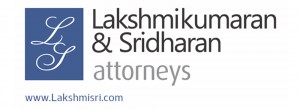Arbitral awards are treated as orders of a court and can be enforced as such, under the Civil Procedure Code, 1908 (CPC), subject to defences under the Arbitration and Conciliation Act, 1996. The Insolvency and Bankruptcy Code, 2016 (code), perhaps inadvertently has become an alternative to the enforcement of arbitral awards. The code, which is a time bound process and results in the sale or liquidation of a company is triggered when default on a debt can be demonstrated. The code contemplates two main categories of debt, financial and operational. Arbitral awards and other orders have been summarily considered as evidence of debt according to the rules made under the code, without requiring argument in court proceedings.

Partner
Lakshmikumaran & Sridharan
The code therefore could become a major way of recovering monies due under an award in addition to the more usual means of enforcement, such as under the New York Convention, the UNCITRAL Model Law, the Arbitration Act and the CPC. This perhaps unintended overlap of arbitration law and the code raises the question of whether the code, being a more time bound and serious threat to a company, can be used to enforce awards when a comprehensive statutory mechanism for the enforcement of awards already exists. In theory, an award involving a debt could be challenged, and stayed or enforced without opposition by the debtor in the relevant court under the Arbitration Act, while the National Company Law Tribunal (NCLT) simultaneously admits insolvency proceedings against the debtor on the basis of the same award. This anomaly arises only as a result of a strict and narrow application of the code, looking only at the fact that a debt default exists. This presents serious questions of judicial overreach, forum-shopping and parallel proceedings.

Principal associate
Lakshmikumaran & Sridharan
This anomaly has indirectly been addressed in recent decisions that appear to take the view that code proceedings cannot be brought only for the purposes of enforcement of an award. These cases rely on section 65 of the code, which effectively prevents the code being used only for recovery of debt. Proceedings under the code must be for the purposes of resolution of the insolvency of a company as a whole, and not merely to recover the awarded sums. While there are no objective criteria for deciding whether proceedings under the code have been brought for resolution of insolvency as opposed to mere debt recovery, the National Company Law Appellate Tribunal (NCLAT) has analysed the conduct of parties in specific cases to answer this issue.
In three decisions in December 2019, the NCLAT dismissed applications brought by respective lenders HDFC Bank, Dena Bank and the International Asset Reconstruction Company holding that the awards, whether or not the subject of simultaneous execution proceedings under the CPC, were barred by section 65 as involving debt recovery only.
The conduct of the applicants justified this treatment of award holders. The financial creditors resorted to arbitration or other proceedings in the first instance rather than applying to the NCLT under the code. This showed that the creditors themselves considered recovery to be possible against the debtors on the presumption that a creditor will not file fruitless proceedings. These were not therefore situations involving insolvency of the debtors, only, at best, wilful failures of solvent companies to pay monies due under an award.
The situation would however be different, where the debt is generated by and subsequent to an award or order. This means that the debt will be an operational debt as opposed to a financial debt. Financial debts usually exist before the award in the form of loans, unconditional put options and so on, and are merely confirmed in or by the award or order. With operational debts, provided that there is no attempted simultaneous execution of the award under the CPC, it is possible for award holders to be seen as genuine insolvency applicants under the code. However, when the award is considered to be a financial debt any code proceedings for the same debt could be seen as an application only for debt recovery and not for the resolution of an insolvent company.
The scope and application of section 65 remain aspects of the code that have yet to be addressed by the Supreme Court. It can be argued that this provision is the only barrier against the code becoming a recovery mechanism for each and every arbitral award against a corporate entity. Nonetheless, strategies pursued by award holders, especially where they also wish to be treated as financial creditors under the code, will have to be carefully tailored to take this issue into account.
Charanya Lakshmikumaran is a partner and Puneeth Ganapathy is a principal associate at Lakshmikumaran & Sridharan.
B-6/10 Safdarjung Enclave
New Delhi – 110 029
India
Contact details
Tel: +91 11 2619 2243 / +91 11 4129 9900
Fax: +91 11 2619 7578 / +91 11 4129 9899
Email: LSDEL@lakshmisri.com
Website: www.lakshmisri.com



























